— Top 10 Squamish stories of 2021 —
Each year, The Squamish Chief editorial team works through the stacks of papers from the previous year to compile our top news stories of the year. For 2021, it was more challenging than usual as there was so much news! What would your Top 10 be? Let us know with a letter to the editor: [email protected].
— 1. Climate —
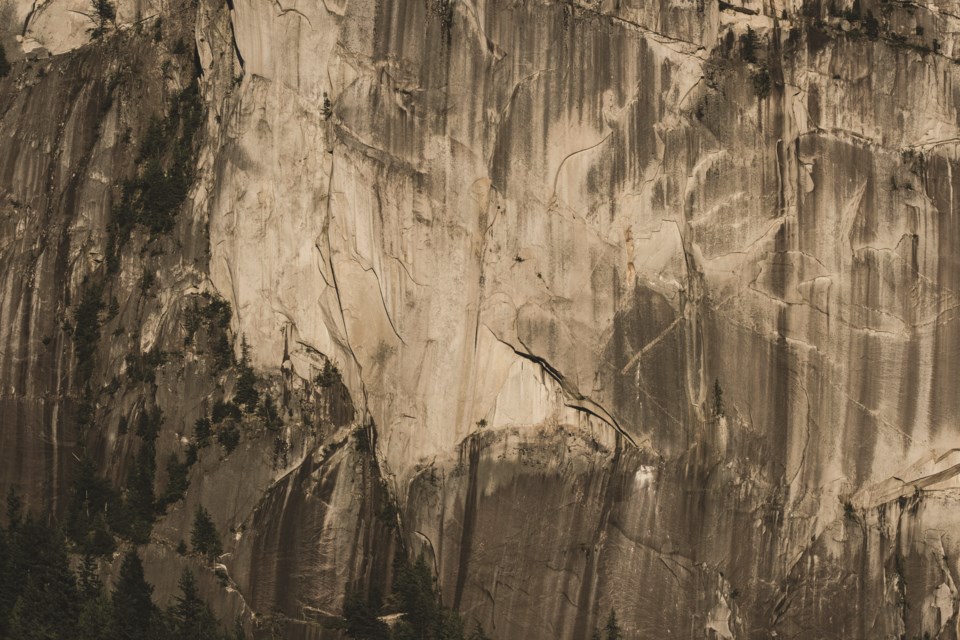
Photo by Alex Ratson via Getty Images
This year saw historic climate disasters ravage B.C.
Raging fires wiped the Village of Lytton off the map. A record-breaking heatwave broke all-time high temperatures for consecutive days across the province and in Squamish.
Hundreds, mostly seniors. died as a result of lack of access to proper air conditioning.
With the summer ending, many hoped that the worst would be over.
That would not be the case.
In November, atmospheric rivers would stream over B.C., bringing unrelenting torrential rain that triggered floods and landslides. Roads and highways were shut down.
The Coquihalla, a lifeline in the province, was ripped apart and had to be closed for weeks. Abbotsford’s Sumas Prairie, formerly a lake, was once again submerged underwater.
Near Lillooet, a landslide killed a handful of people.
Squamish was relatively unscathed by the worst of the flooding, but problems still arose.
Most immediately noticeable were issues with the supply chain.
Many people wandering grocery stores would see empty shelves and limits on eggs, meat and milk. Supply chains had been disrupted to the point where rationing was necessary.
Not just grocery stores were affected. Last-minute Christmas shoppers started running into roadblocks. At least some retailers in town were forced to tell customers that some items were out of stock, with no confirmed date as to when they would be replenished.
Fissures appeared in the gravelled portion of the Mamquam Road, prompting an indefinite road closure.
In the meantime, a number of homes in the Sea to Sky were put on evacuation alert as water levels rose to dangerous levels.
And while Squamish residents were relatively lucky, there were still cases of flooding and property damage for some homeowners.
During the storms, it wasn’t an uncommon sight to see pumps churning out water from the ground floors of houses and businesses.
Later, in December, Squamish would be blanketed by an uncommonly large amount of snow.
Winter storm warnings were pervasive from mid to late December, and, during at least one night, a foot of snow fell.
All the while, throughout the year, extreme temperature variations caused massive rock falls at the Stawamus Chief.
— 2. Reconciling with our past —
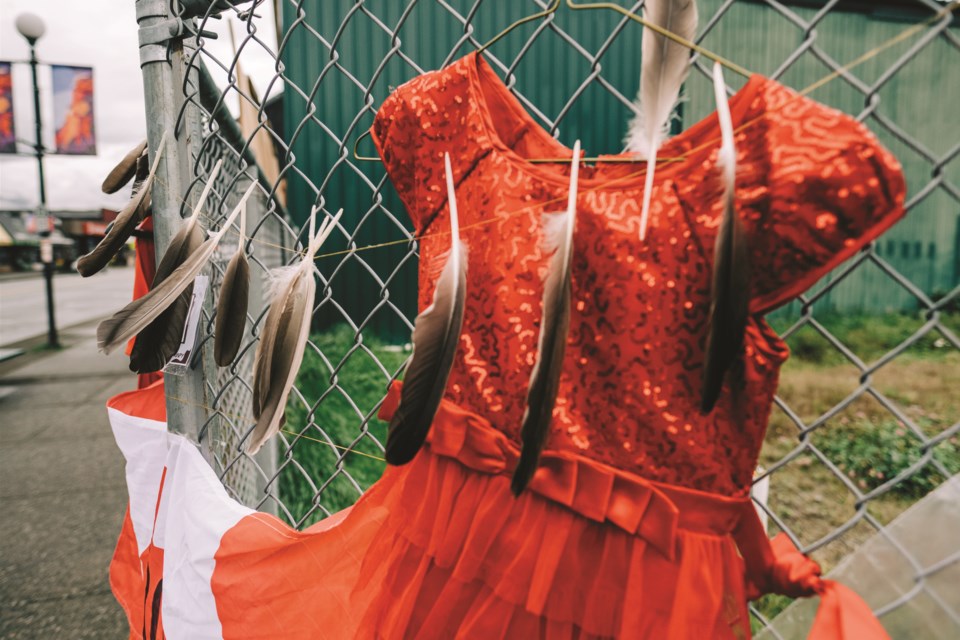
Photo by Alex Ratson via Getty Images
Shockwaves were sent around Canada after the bodies of 215 Indigenous children were found at the former Kamloops Indian Residential School.
The discovery prompted more investigations of former residential school grounds, and, to the horror of the country, more and more bodies were found.
This was not lost locally.
The Nation said public records showed that 12 unidentified students died while attending St. Paul’s between 1904 and 1913.
The investigation’s goal is to find the location of each of these children and bring them home, they said.
The town rallied behind the Nation.
During the first annual National Day of Truth and Reconciliation, which was held this year, Squamish residents packed Cleveland Avenue in a procession to show solidarity with the Nation and honour those who survived and who were lost as a result of the residential school program.
The procession made its way to O’Siyam Pavilion and the crowd flooded the park, packing it shoulder-to-shoulder.
There, speakers from the Nation, including several Elders, spoke of their experiences as residential school survivors or as the children of survivors.
There was an awakening of sorts to follow with non-Indigenous folks, perhaps for the first time, truly understanding Canadian history and vowing to address wrongs. Since, there have been movements to be more collaborative and respectful of Indigenous folks and their deep routes in Squamish and beyond.
On Dec. 10, First Nations — Skwxwú7mesh (Squamish), Lil̓wat7úl (Lil’wat), xʷməθkʷəy̓əm (Musqueam), and səl̓ilw̓ətaʔɬ (Tsleil-Waututh) — announced they have jointly entered into a memorandum of understanding (MOU) with Vancouver and Whistler to begin assessing the feasibility of hosting an Olympic and Paralympic Games in 2030.
— 3. COVID-19 lingers —
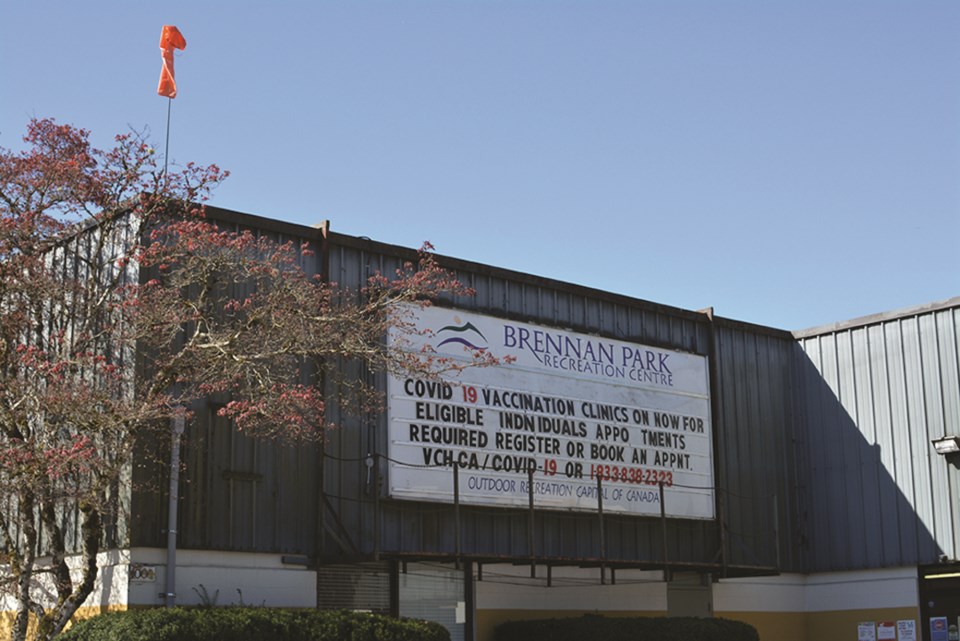
This year was supposed to be the year when everyone could return to normal life.
The rollout of several different vaccines with high rates of success against COVID-19 meant that, for a time, many believed that it was just a matter of getting shots into arms, and society could once again resume.
And for a while, that was the case.
As vaccinations rolled out, more restrictions were slashed until summer, when things felt almost normal.
Indoor restaurant dining was reinstated. Sports events reappeared. Theatres reopened. Casinos were back and bars started pouring drinks again. At one point, the province even declared that masks were no longer necessary.
Many in Squamish rejoiced, and, for a while, businesses were put in a position to make a recovery.
But it was a fleeting taste of normalcy.
By the fall, the new Delta variant had become the dominant strain worldwide, Squamish included. This strain of COVID was far more contagious, prompting renewed worry from health officials.
Masks were once again donned, and from there, things would begin to worsen again.
Then Omicron appeared. This variant of COVID would prove to be even more contagious than Delta. Currently, it’s expected to overrun Delta and become the new dominant strain.
As of Dec. 22, a number of severe lockdown measures were reimposed in B.C. gyms and fitness centres were closed, sports tournaments shut down, organized gatherings stopped, New Year’s parties cancelled, and private gatherings significantly capped.
The new restrictions are expected to last until Jan. 18, though some will last until the end of the month.
— 4. SAR’s record year —
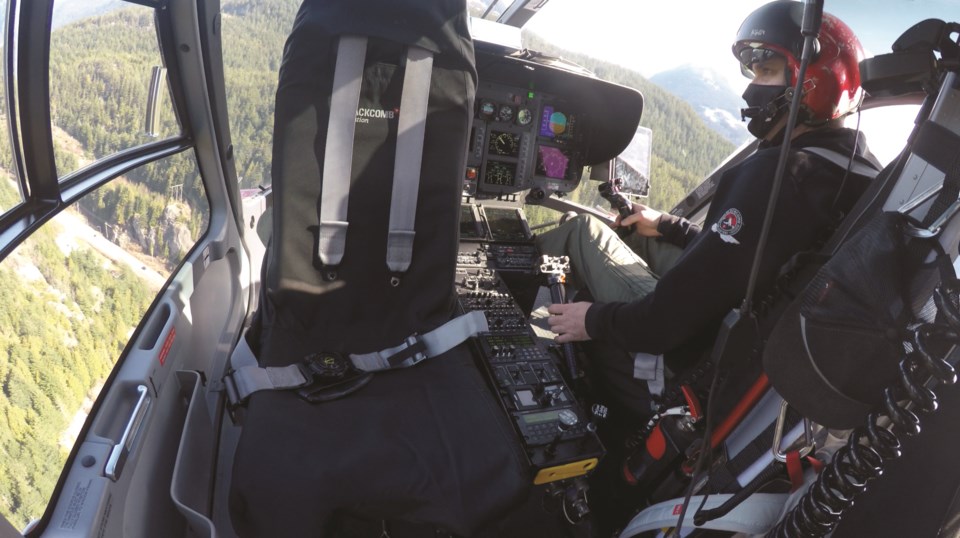
Squamish Search and Rescue tallied another consecutive record-breaking year in 2021.
The rescue agency saw a big spike in calls during the summer high season in 2020, as restrictions for indoor activity forced people to seek entertainment outside.
That trend appeared to continue in 2021, and some could argue that, if anything, it probably increased.
As of late December, the SAR recorded 151 callouts, demolishing the previous year’s tally of 124 calls in 2020, which was a record-breaker at the time.
Despite the increase in calls, rescue manager B.J. Chute said that an influx of new recruits is helping crews keep up with the demand.
Furthermore, this year, calls appeared to be spread out over the week, rather than concentrated mainly on the weekends.
Perhaps the most significant rescue effort this year was the community-wide search for the missing teenager Richie Stelmack.
It was the first time in recent memory when Squamish Search and Rescue called for help from the entire community.
Stelmack went missing overnight in September, last seen in his room.
A massive crowd gathered at Quest University field to be split into groups, each led by a SAR member. Collectively, they swept the entire Garibaldi Highlands area, but came up empty-handed.
Tragically, the next day, SAR members would find Stelmack’s body in the Mashiter Creek, underneath the bridge linking Quest with the rest of the Highlands.
Another big search involved a missing hiker named Daniel Ring.
Ring had gone hiking in Garibaldi Provincial Park and was aiming to go camping in Rampart Ponds. He was last seen at the popular Elfin Lakes trail.
However, he got sidetracked and went missing for days.
He was eventually found along the stretch of the Pitt River that crosses in Coquitlam SAR’s territory.
Ring was spotted by a BC Wildfire Service helicopter that was responding to a blaze in the area.
It landed and gave him a ride back to Squamish.
— 5. Gondola reopens again —
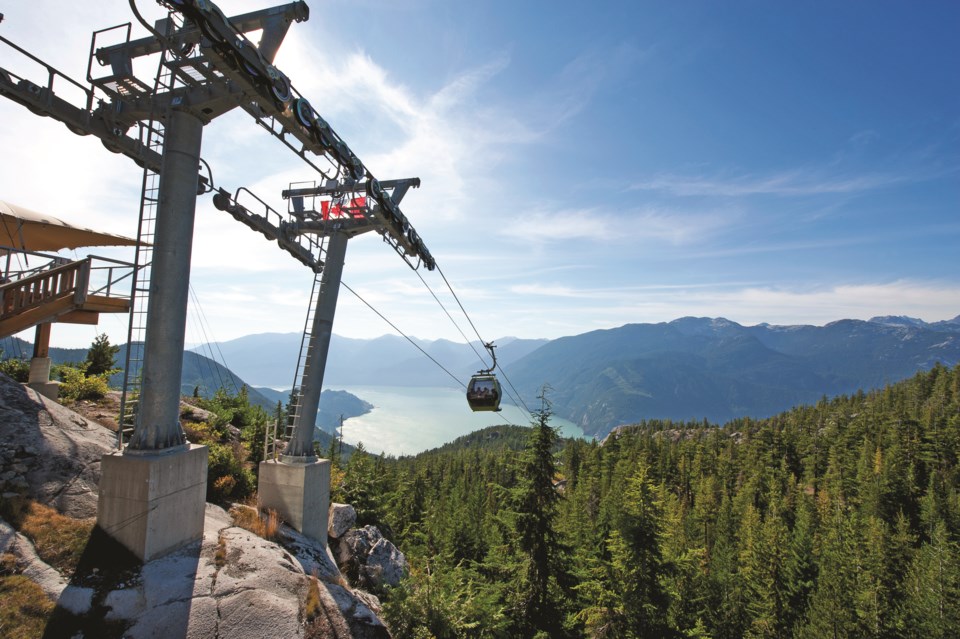
Photo by PIleasmiles/Getty Images
After recovering from a second act of sabotage last year, the Sea to Sky Gondola reopened its doors once again.
The tourist attraction threw open its doors in June after a particularly tough few years.
In 2019, the gondola’s cable was cut, prompting an RCMP investigation that is still ongoing.
The gondola reopened in 2020, but it was quickly shut down as a result of COVID restrictions. It would later reopen again a few months later, but, in the summer of that year, its cable was once again sliced.
There was yet another forced closure. Officers appealed to the public for information, and the gondola offered a $250,000 award for information that could solve the case.
Gondola general manager Kirby Brown said no one has yet to claim the money.
The Squamish Chief asked the RCMP for comment on the case, but the officer in charge of the file was away and thus could not meet our press deadline.
Despite another major setback this year, the gondola reopened once more.
The organization has promised a variety of new security measures, such as taking the cabins down from the cable each night.
Brown said that it was a time to rally together.
“We didn’t just get opened. We’re pretty proud of how connected our team remained through the second event and how masterfully...the entire Sea to Sky Gondola family came together to recalibrate and rebuild this place once more,” said Brown.
“Instead of being disheartening, I looked around at this little community that we have out here, and it felt like the Whos of Whoville waking up with no trees and candy. It [felt like] getting focused on the bigger meaning of this little business, right? Which is to give Squamish a place to come and hang out and connect together.”
Brown said it was a big challenge that ultimately matured the company.
He noted that things are starting to feel normal, with the lodge once again open and backcountry skiing once again accessible.
The next challenge, however, is the new Omicron COVID variant.
Brown said that pandemic precautions would remain. Every party will get its own cabin when riding the gondola, and vaccine passports and masks are required to enter the lodge.
The lodge also has a ventilation system that frequently turns over the air in the building, reducing the chance of airborne contaminants.
Throughout all the hurdles, Brown said that he couldn’t be more proud to be from Squamish, where residents have shown their ability to stand together time and again.
“We’re here to stay,” he said.
“We’re so committed to this team and this community. We’re doing everything we can to make this a lovely place to come and hang out.”
— 6. Density —
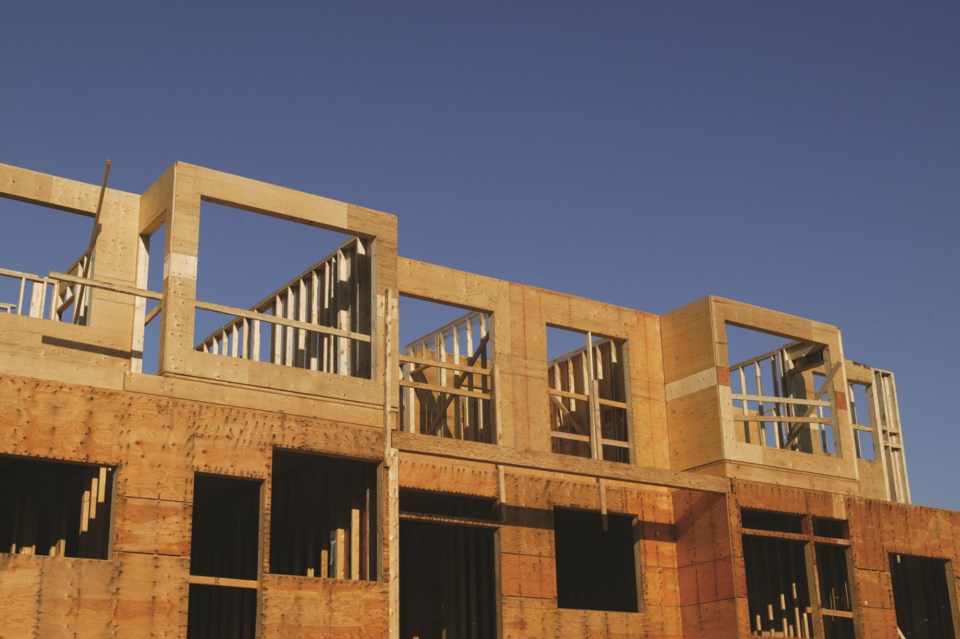
Photo by aughingmango/Getty Images
Development, an ever-hot topic in Squamish, reached a boiling point this year when a real estate broker sent out flyers to residents of the Garibaldi Estates.
While the broker, London Pacific, did not reveal the client it was acting on behalf of, the firm told residents that it had experience in land assemblies, and that there was a chance that more density would be allowed in the Estates.
The municipality has a neighbourhood planning process scheduled in the future for the area, and it appeared the developer was betting on the possibility that more buildings could be built in that zone.
Residents reacted swiftly, circulating a petition that demanded their neighbourhood be left untouched.
In response, the District said that the neighbourhood planning process hadn’t taken place, and that there would be a public engagement process that would help shape the neighbourhood plan.
However, it was not enough to placate the petitioners.
A group called Stop The Infill was formed and demanded that the District stop the densification of the Estates.
They hosted a town hall that gathered dozens of in-person attendees, and several organizers spoke at the event, making the case against densification.
They also complained that language in the Official Community Plan appeared to target the Estates for densification, thus prejudicing any neighbourhood planning process in favour of densifying the area.
Since then, the issue of densification has become top of mind for many people in Squamish who feel development has been happening at too rapid a pace.
— 7. The Spit —
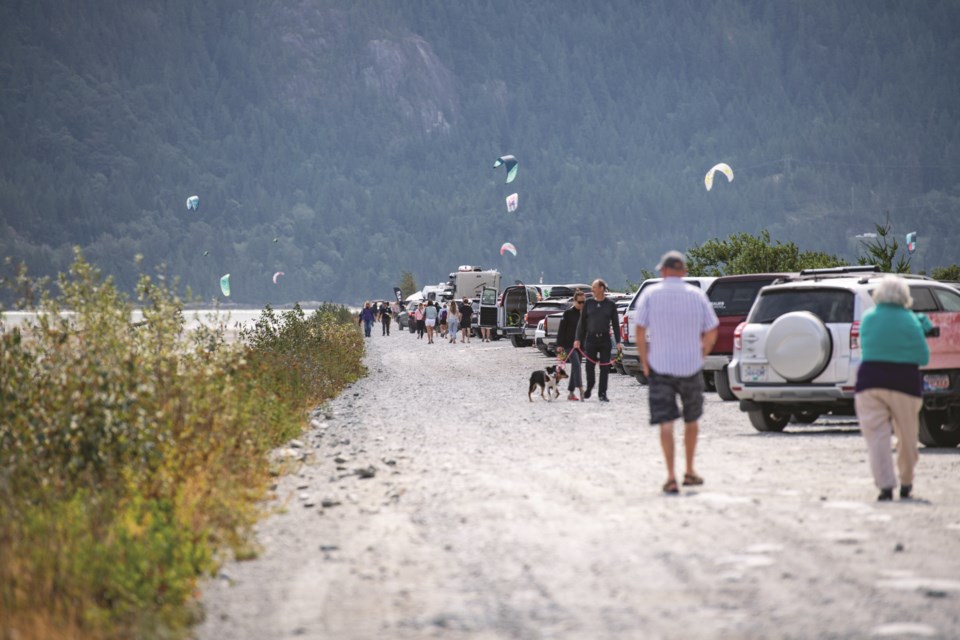
For years, the Squamish Spit has been home to one of Canada’s most popular kiteboarding locations.
The area provides quick and easy land access to waters where the best winds in Squamish gust through Howe Sound.
It’s made the place an iconic location in town, which has attracted kiteboarders from across the country and the world.
However, the ideal conditions for the sport have come at a cost to the local salmon population.
The Spit is an artificially constructed berm that was intended for industry. Since the 1970s, when the structure was first created, salmon numbers have plummeted greatly.
The berm has blocked access to the shallower, calmer estuary waters, where young salmon have traditionally grown up before venturing into the deep waters of Howe Sound.
However, since its construction, the berm has been forcing juvenile salmon from the Squamish River straight into the sound. The premature salmon, which aren’t strong enough for the deep waters, often don’t survive.
In other locations such as in the Fraser River, Washington State and California have also been dismantling human-made structures to restore natural systems.
As of this year, an effort spearheaded by the Squamish River Watershed Society, along with the Skwxwú7mesh Úxwumixw, (Squamish Nation), and Fisheries and Oceans Canada, has put in motion plans — underway since 2017 — that will ultimately remove the southern portion of the Spit.
Members of the Nation have called the restoration an act of reconciliation.
The Spit’s roundabout at the southernmost tip will remain as a launching island for kiters, but the land north of that will be removed up to the yellow gate. This would force kiters to access the area by boat.
In response, the kiting community launched a campaign dubbed Realign Not Remove, lobbying for the officials behind the project to realign the Spit in a manner that would still preserve land access to the launching point.
They argued this was the original plan that was presented to them, and that the watershed society was backing out on its promise.
In response, the society said that a realignment was the original intention, but as the idea was studied more, it became apparent that this would be an impossibility.
Since then, the Nation and Watershed Society have rebranded as Restore the Shore to explain more fully why restoration of the estuary is environmentally beneficial.
— 8. Sports resume —

Photo by Legacy Fighting Alliance
At long last, after a year where many competitive sports were sidelined, athletes were once again able to have a crack at real competition.
While a number of teams and athletes continued to train throughout the pandemic, competitive games were not allowed due to COVID-19 restrictions.
However, this year signalled a return to some normalcy.
Sports like soccer, hockey and rugby all were able to resume regular season play.
However, there has been a setback as of late.
New provincial restrictions that were brought on by the wave of the new COVID variant, Omicron, have prompted tournament play to be banned from Dec. 20 to Jan. 31.
Tournaments for high-performance athletes, however, are still allowed during that time.
Individual sports, like skiing, swimming or skating are still allowed.
Regular season play is still allowed for all sports.
In meantime, Squamish has showcased some of its top athletic talents.
Perhaps the brightest spotlight shone on the late Marc-Andre Leclerc.
A film chronicling his achievements debuted in Squamish at the annual Arc’teryx climbing festival. It then showed in theatres in the United States, and, later in the year, the film premiered on Amazon Prime.
The documentary, titled The Alpinist, painted a portrait of Leclerc as arguably the greatest alpinist of his generation, making ascents that many would consider unthinkable.
He made the first winter free solo — that is, rope-free — ascents of the Torre Egger in Patagonia, and the Emperor Face of Mount Robson.
However, it also chronicled his tragic death in 2018. An avalanche buried him and his climbing partner, Ryan Johnson, after they had just completed a new route on the North face of the Mendenhall Towers, just north of Juneau, Alaska.
The other standout athlete from Squamish this year was Jamey-Lyn Horth Wessels.
COVID-19 restrictions had previously denied the MMA fighter a chance to compete last year in Dana White’s Contenders, a reality TV show which offers fighters a shot at entering the UFC.
This year Wessels was able to sign with a different American league, the Legacy Fighting Alliance, and, in December, she was given her first fight — a title match for that league’s flyweight division.
After sustaining a leg injury from a kneebar, Wessels would nonetheless manage to beat her opponent, Mayra Cantuária, in the third round with a rear-naked choke.
She is now the reigning FLA female flyweight champion.
Wessels has signed a deal for three fights over a year with the promotion, with an escape clause that would allow her to enter the UFC, should the opportunity arise.
She said she still has her eye on making it to the top MMA league.
— 9. Municipal politics heat up —
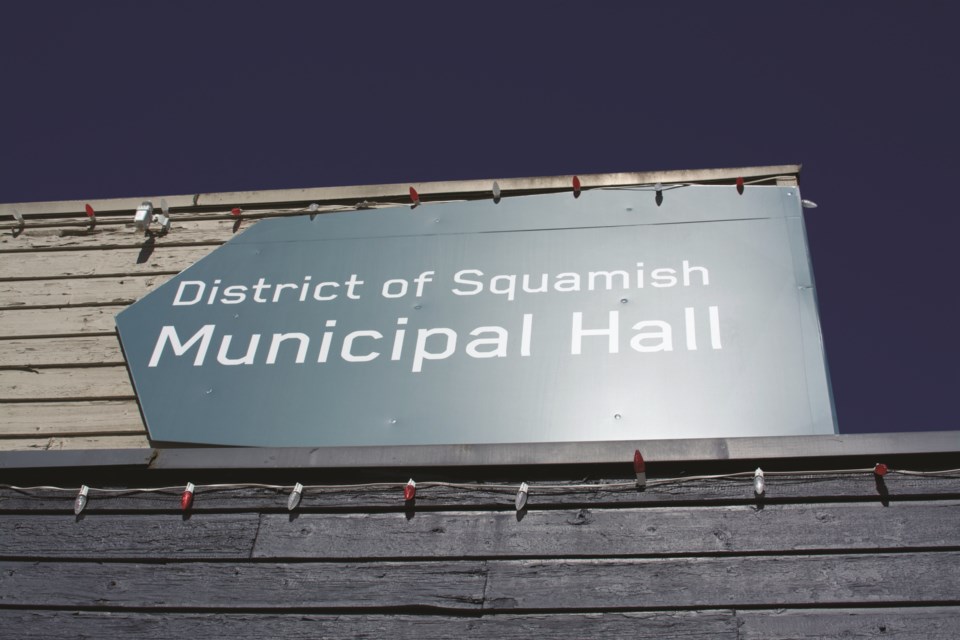
This year, the usually more subdued tone of small-town politics took on the aggressive tact of a provincial or even federal election.
March marked the advent of a co-ordinated political attack campaign launched on Facebook.
With one year away from a municipal election, an anonymous group called Squamish Voices, separate from the years-old community forum, emerged.
Posing as a community group, the Facebook page would spend much of the year creating paid negative advertising against the District of Squamish. Its owners also have run several direct-mail campaigns sending poster-like flyers to Squamish mailboxes.
According to data from Facebook, as of late December, the managers of the page have spent $11,389 on political advertising on the social media platform.
There are two phone numbers listed with the account on different ads it has posted. One is from Newton, Surrey, and the other is from Vancouver, according to Yellow Pages.
Previously, The Chief left messages with both numbers and has not received any response.
An address associated with Squamish Voices that Facebook says was submitted March 31, 2021, is listed as being located in Toronto.
The Chief has previously asked Facebook communications to identify the owner of Squamish Voices, but the company declined, citing privacy policies.
In the meantime, in a separate development, what looks to be a new political party is ramping up its messaging.
A group called Squamish Forward has created a webpage, and its authors have been posting opinion pieces addressing what they consider to be problematic ways in which the municipality is run.
The creator, Evan Drygas, is a fifth-generation resident of the town.
In effect, the page has created the appearance of a shadow cabinet, though at least one contributor, Eric Andersen, already serves on council.
With the community going to the voting booth in less than a year’s time, it would be unsurprising to see at least some of its contributors make an attempt to run for office.
— 10. Overdose prevention site —

The toxic drug supply crisis that has been ravaging B.C. has not spared Squamish.
For some time, there was little local residents could do in terms of finding a safe place to use substances.
For a while, the temporary Bridge site that was erected earlier last year allowed peers to supervise each other. However, once that was taken down, there were few options.
This year, however, a new overdose prevention site was installed in the former Under One Roof building right by the library.
Having opened on Feb. 22,, the site, located at 37930 Third Ave. is an emergency initiative to stem the tide of people dying from toxic drug poisoning.
It was spearheaded by Vancouver Coastal Health (VCH) and Squamish Helping Hands, in partnership with the Sea to Sky Community Action Team.
The site has trained staff who are available to help people use their substances safely and to provide drug checking services for those concerned about the safety of their supply.
According to the most recently released figures from the BC Coroners Service, there were 1,782 suspected illicit drug toxicity deaths between January and October 2021, the highest ever recorded in a calendar year.
In the North Shore-Coast Garibaldi health region, which includes Squamish, there were 47 deaths between January and October.




